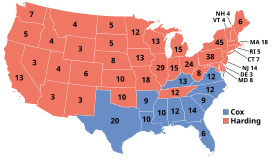Be very hesitant to send American soldiers to war, so that they would only do it when there's a very good reason. Most people do have the good sense to know that war is a very bad thing. Strangeloves have turned that healthy instinct on its head. In PentagonThink, Americans will only object to war if there are a lot of American casualties. The way you minimize American casualties is to rely heavily on long-range firepower and, especially, air power. Even though doing that may wind up blowing civilians away by the tens of thousands in the enemy country, thereby severely undermining the prospects for a quick resolution of a war like the one in Iraq. But, the thinking goes, this is 'minimizing casualties', i.e., American casualties, the only ones that supposedly count.
Howard Schuman; WAR, PRESIDENTS AND PUBLIC OPINION. New York: Wiley, 1973. 300 pp, Social Forces, Volume 53, Issue 3, 1 March 1975, Pages 5. Download Ebook: war presidents and public opinion in PDF Format. Also available for mobile reader.


That then ensures broad public support for the war because people only oppose war when there are American casualties. And since the American military is invincible, the 'center of gravity', i.e., the only weakness, of the American military is the loss of public support. So, use heavy airpower and artillery, you minimize American casualties, the American public supports the war and our invincible generals can't avoid winning. That way, you can have more wars because the public will support them. The ct that normal people dislike war becomes a good reason to have more wars! Ith thinking like this, is it any wonder that our infallible generals lost the Iraq War? Is al scientist's nalysis of hard quantitative polling data, a social scientist's wet dream.
Vely had nothing whatsoever to do with the outcome of the 1968 residential election. En ured what tant to people, which would have provided quantitative isconfirmation. En an economist would see the problem ith that result.
But the numbers don't lie, right? The same problem of letting the false concreteness of olling numbers cloud the results. Has become a frequently-cited ideological justification for this peace-is-war goofball theory. Which ironic in a way, because Mueller's book is on the surface a careful politic a The problem with quantitative data, though, is that it can be seductively misleading.
One of the two things I remember most from a forecasting class I took in graduate school was arguing with the professor about a statistical regression model for Presidential elections that relied heavily on economic statistics for its predictions, which proved conclusi that the Vietnam War P The other thing I most remember from his class was his first rule of forecasting: if a forecast looks wrong, it probably is. In this case, the retroactive forecast was a test of the model to make sure it was using accurate predictive assumptions. But anyone with ev the most superficial knowledge of the 1968 election could see the problem with that result. There was also extensive public opinion (marketing) data that meas issues were impor d The other problem with the result was that it showed clearly that Hubert Humphrey was elected President in 1968. You might think that ev w Mueller's results suffer in part from p Mueller's focus was comparing the public opinion polls on the Korean War and the Vietnam War.
His conclusion that is grist for the mill of the war planners who want to minimize public opposition to war by maximizing the death and destruction on the Other Side is the one that says that public opposition to wars is driven by the rise in American casualties, period. He restated that result more recently in a much-cited article in. My basic reaction to this is, hmmm, let's see. As a war goes on month after month and year after year and casualties mount, it becomes less popular. He then continues: The only thing remarkable about the current war in Iraq is how precipitously American public support has dropped off.
Casualty for casualty, support has declined far more quickly than it did during either the Korean War or the Vietnam War. And if history is any indication, there is little the Bush administration can do to reverse this decline. Now, support has dropped off for the Iraq War more quickly than for the Korean and Vietnam Wars, even though casualties are not perceived as being so severe. That makes me think that the American public may be applying other standards of judgment than simply counting American casualties. To me, that's also a 'Well, duh!' But Mueller finds that result 'remarkable'.
I see two basic possibilities for this. One is that his findings and the resulting generalization derived from it, that mounting American casualties and only that make people turn against a war, are so strongly established that the Iraq War must have something about it that makes it a radical exception. The other possibility is that the simple-minded conclusion that American casualties and only American casualties drive public opinion about war is somehow deficient. I'm betting on the latter. Callan Method Teacher Book.